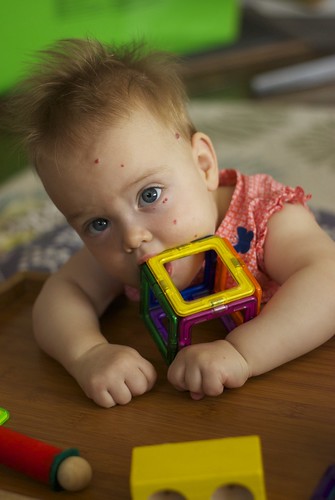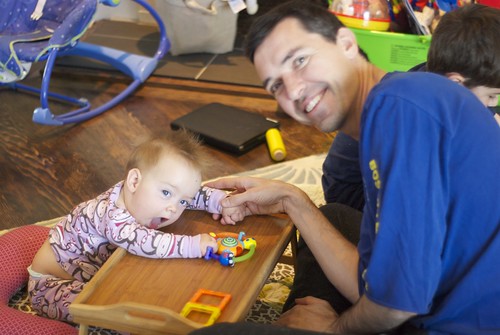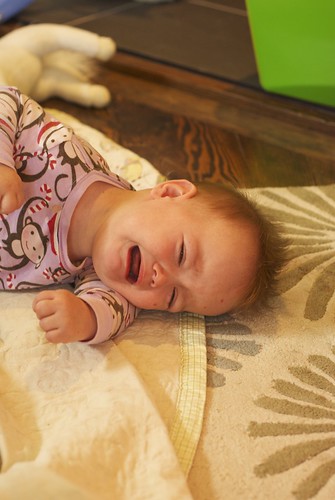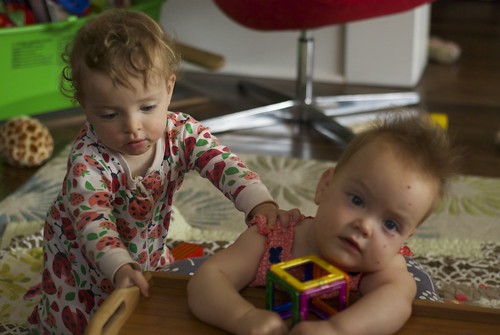A few days ago, Cora was diagnosed with cerebral palsy. We’ve known since a few days after she was born that this would most likely be the case, though no one ever used that term. We have also known since she was four months that more than likely it would affect all four of her limbs. But because it’s hard to tell if a tiny infant has a movement disorder, it is typically not diagnosed until they are a bit older and are exhibiting delays. She is now eight months adjusted, and the tightness in her limbs, and the difficulty she has in moving is apparent to a more trained eye. Nothing has actually changed, it’s just that now a doctor is willing to affirm that yes, the brain bleeds have affected affected her motor skills. They still cannot tell us what it means exactly. Will she walk? Hold a pencil? Play piano? No one will say for sure. What J and I have read is that parental expectations are a huge determining factor, so we continue to assume that she will be running on the playground some day.
Before I get too far ahead of myself, you may be wondering what is CP? It is just an umbrella term for someone who had a brain injury before, during or shortly after birth which has affected their motor skills. In C’s case, it happened after birth as a result of her trials in the NICU. It affects approximately 1 in 400 people. For some people it might mean something as subtle as a limp. For others, it might be almost entirely incapacitating. The brain is a very complex organ and can compensate in very unexpected ways. It was once believed that it was a static condition, but it is now known that in some cases the brain can reorganize itself around areas of damage, so therapy can help a lot. It is very difficult to predict what it will look like early on, although we know it will not be at the very extreme end of the spectrum. But beyond that, we don’t really know what it will look like in Cora and no one will, or should prognosticate.
Even though I knew this was coming, both J and I have had an unexpectedly emotional reaction. I am so proud of the gains she is making, learning to use her muscles and working so hard to do what is easy for others. She is my little warrior. And I know that to be the best mother I can be to her, I need to keep moving on the path to acceptance. But… I’m not there yet. I still feel sad. And angry. And guilty. At the same time I’m so grateful, so proud of her, and feel so, so lucky to have her in my life. She makes my life better because of who she is, just like my other little ones do.
The diagnosis doesn’t actually change much in C’s life. She is already getting regular therapy, and she will continue to get it. We keep working with her, helping her learn to relax and use her arms and legs. We keep working with Beatrice too, who is apparently slightly delayed as well.
J sometimes says “Well it won’t get any harder than this.” And maybe it will or maybe it won’t. In the meantime, life continues, messy, beautiful, fun, ridiculous, mundane, absurd, with the occasional struggle but also lots of joy.




